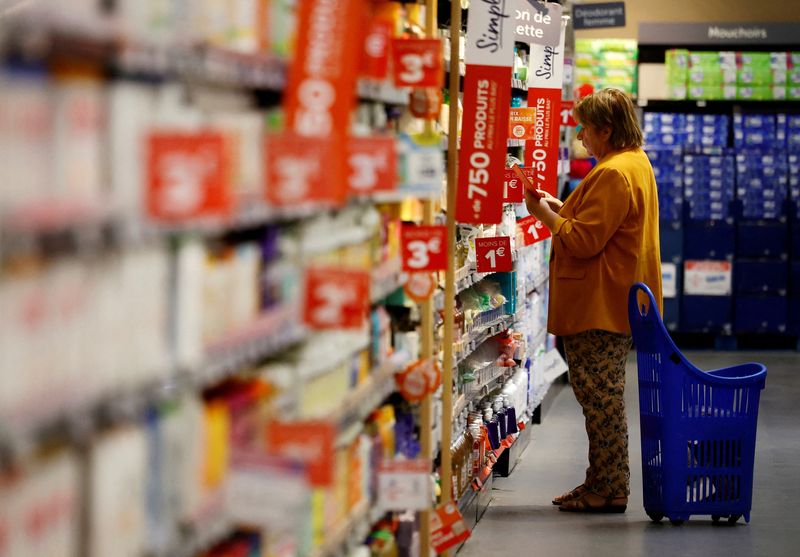By Jonathan Cable
LONDON (Reuters) - The euro zone economy is likely contract this quarter and won't return to growth anytime soon, a survey showed, as the dampening effect of central banks' long campaign of interest rates rises becomes clearer.
HCOB's flash euro zone Composite Purchasing Managers' Index (PMI), compiled by S&P Global and seen as a good gauge of overall economic health, rose to 47.1 in September from August's 33-month low of 46.7.
The reading was still below the 50 mark separating growth from contraction, however, and Hamburg Commercial Bank said the bloc's economy would contract 0.4% this quarter, far worse than the flatlining predicted in a recent Reuters poll.
"A recession is becoming increasingly clear in the euro area. Unlike in the winter half-year of 2022/23, the economic weakness is not concentrated in Germany, which has suffered particularly badly from high energy prices," said Christoph Weil at Commerzbank (ETR:CBKG).
"The increase in the ECB key interest rate by 450 basis points in the meantime is slowing down the economy in all euro countries."
Although two years of unprecedented global policy tightening may have reached a peak, major central banks have served notice they will keep interest rates as high as needed to defeat inflation.
The impact is now being clearly felt, with shrinking business activity in Germany, Europe's largest economy, pointing to a contraction there due to a sustained decline in demand for goods and services.
Meanwhile France's dominant services sector contracted at an even sharper pace in September, its PMI showed, as falls in demand and new orders weighed on the euro zone's second-biggest economy.
In Britain, outside the European Union, companies endured a much tougher September than feared, marked by growing unemployment and recession risks.
The Bank of England - which had access to the PMI data - halted its long run of interest rate increases on Thursday as Britain's economy has slowed and inflation fallen, but Governor Andrew Bailey sought to stress the central bank did not think its job was done.
Conversely in Spain, gross domestic product grew 0.5% last quarter, confirming a faster and stronger rebound from the COVID-19 pandemic than in many other places.
OUT OF ORDER
September's fall in overall activity in the euro zone came despite firms barely increasing their charges. The composite output prices index dropped to its lowest since early 2021.
That drop will likely be welcomed by policymakers at the European Central Bank who last week raised their key interest rate to a record high of 4% in their fight against inflation.
The services PMI rose to 48.4 from 47.9 but spent its second month below the breakeven mark this year.
With higher borrowing costs eating into indebted consumers' disposable income they cut back on spending. The services new business index fell to 46.4 from 46.7 - its lowest since February 2021.
The manufacturing PMI has been sub-50 since mid-2022 and the latest headline index dipped to 43.4 from 43.5, confounding expectations in the Reuters poll for a rise to 44.0.
An index measuring output, which feeds into the composite PMI, held steady, albeit still deep in contraction territory.

A chunk of that activity was from factories completing existing orders. The backlogs of work index dropped to its lowest reading since the COVID pandemic was cementing its grip on the world in May 2020.
"Businesses are still working off old orders at the moment, which is keeping output reasonable right now. Still, that suggests a weaker outlook for the months ahead," said Bert Colijn at ING.
